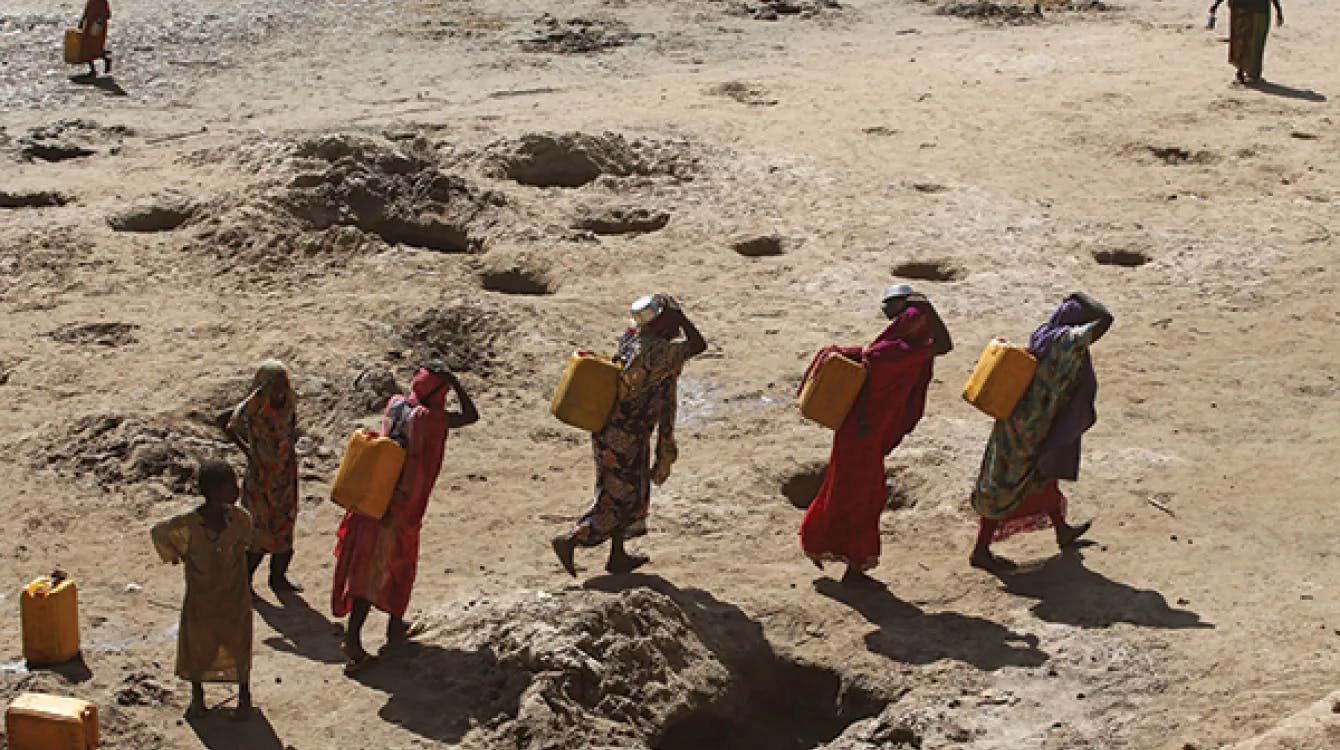
Climate change is not just an environmental issue; it is a complex crisis that significantly affects vulnerable populations, particularly women and young people in Africa. As temperatures rise, extreme weather events become more frequent, and natural resources dwindle, the adverse consequences are disproportionately borne by these groups. In this article, we will examine the stark realities faced by women and young people in Africa due to climate change, supported by factual evidence and compelling examples.
Unequal Access to Resources:
In many African countries, women play a central role in agricultural activities and resource management. However, climate change exacerbates existing gender disparities by limiting access to vital resources. Rising temperatures and irregular rainfall patterns directly impact agricultural productivity, leading to food insecurity. As a result, women and young girls often face increased workloads, as they must travel longer distances to fetch water and firewood, negatively affecting their education and health.
In rural areas of Malawi, erratic rainfall has caused prolonged droughts, leading women to walk long distances to find water, impacting their ability to engage in income-generating activities and hindering girls’ school attendance.
Health and Well-being:
Climate change poses significant health risks, particularly for women and young people. Increased temperatures contribute to the spread of vector-borne diseases, such as malaria and dengue fever. Moreover, extreme weather events like floods and droughts can lead to waterborne illnesses and malnutrition. Limited access to healthcare and sanitation facilities further exacerbates the vulnerability of women and young people to these health risks.
In Kenya’s coastal regions, rising sea levels and erosion have contaminated freshwater sources, leading to a rise in waterborne diseases, affecting women and children who bear the responsibility of collecting water for their households.
Education and Economic Opportunities:
Climate change impacts education and economic opportunities for women and young people in Africa. Disrupted weather patterns often result in prolonged droughts or floods, leading to crop failures and livestock losses. This jeopardizes the livelihoods of communities dependent on agriculture, forcing young people, especially girls, to drop out of school to support their families. Limited access to education limits their future prospects and perpetuates the cycle of poverty.
In Ethiopia, changing rainfall patterns and recurring droughts have led to decreased agricultural productivity, causing girls to drop out of school to work as laborers or marry early due to economic pressures. __ Displacement and Conflict:__
Climate change-induced environmental degradation can lead to forced displacement and increased social tensions. Competition over scarce resources, such as fertile land and water sources, can trigger conflicts within and between communities. Women and young people are particularly vulnerable to the consequences of displacement, facing risks of exploitation, violence, and inadequate access to basic necessities.
The Lake Chad Basin, encompassing Nigeria, Niger, Chad, and Cameroon, has witnessed conflicts driven by competition over dwindling resources, displacing millions of people. Women and young girls face heightened risks of sexual violence and exploitation in refugee camps.
Climate change is a harsh reality for women and young people in Africa, as they bear the brunt of its consequences. Unequal access to resources, compromised health, limited education and economic opportunities, and increased vulnerability to displacement and conflict are among the many challenges they face. Addressing climate change requires a gender-responsive and youth-inclusive approach that empowers these groups, ensures their participation in decision-making, and provides them with support to adapt and build resilient communities. Only through collective action and meaningful interventions can we mitigate the adverse effects of climate change on Africa’s most vulnerable populations